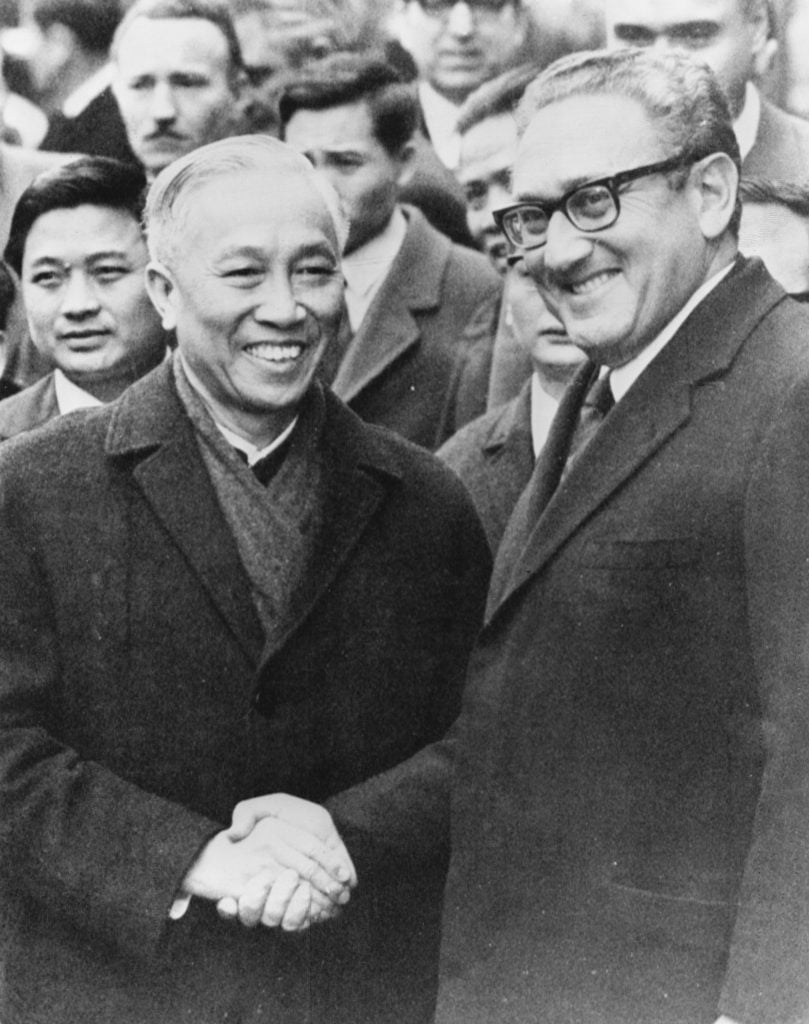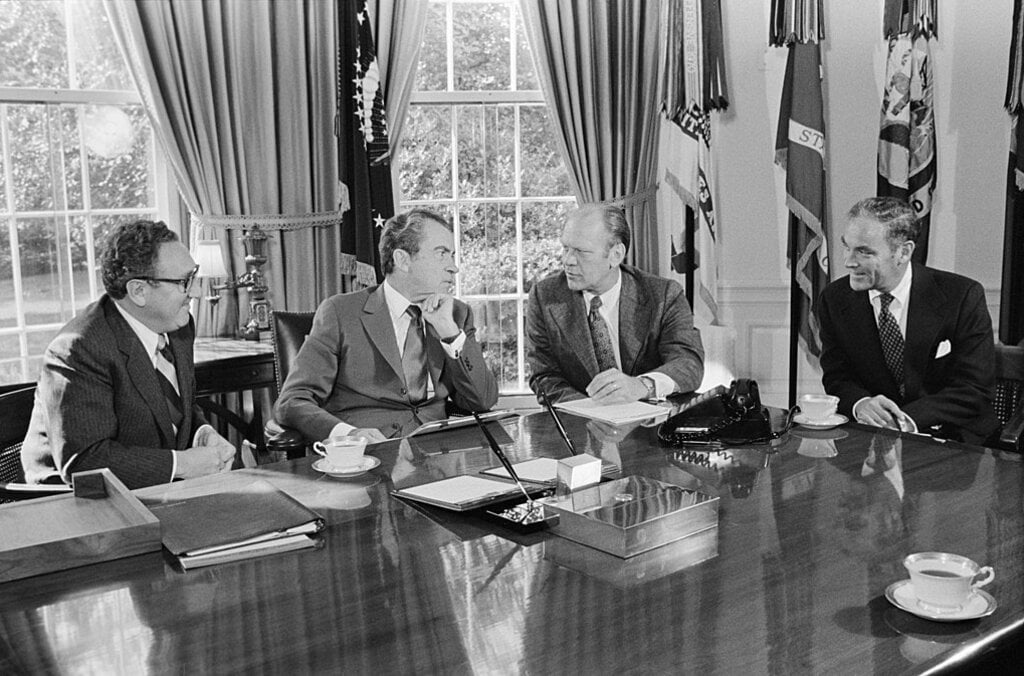Henry Kissinger
Speed read
Henry Kissinger was awarded the Nobel Peace Prize, jointly with Le Duc Tho, for negotiating a ceasefire in Vietnam in 1973.

Full name: Henry Alfred Kissinger
Born: 27 May 1923, Fürth, Germany
Date awarded: 17 October 1973
Ceasefire in Vietnam
A student of history and political science, Henry Kissinger became a professor at Harvard in 1962. During the Vietnam War, he laid the groundwork for President Lyndon Johnson’s peace negotiations with North Vietnam in Paris. After the 1968 election, Kissinger became President Richard Nixon’s key foreign policy adviser. Kissinger’s strategy was to negotiate with North Vietnam while the USA applied powerful military pressure, including the 1972 Christmas bombing of the North Vietnamese capitol Hanoi. A ceasefire agreement was signed in January 1973. That autumn Kissinger and his North Vietnamese counterpart Le Duc Tho received the Nobel Peace Prize, which Tho declined. The peace prize inspired heated debate, and for the first time in the history of the prize, two of the Norwegian Nobel Committee members resigned in protest.
"There is no other comparable honor. A statesman’s final test, after all, is whether he has made a contribution to the well-being of mankind."
- Henry Kissinger about the Nobel Peace Prize in 'Years of Upheaval', page 370, Little, Brown and Company 1982.
Violation of the ceasefire
The North Vietnamese viewed the USA as the last in a long line of foreign colonisers that included China, France and Japan. North Vietnamese leaders saw the South Vietnamese government as puppets for the US government. But the South Vietnamese government did not comply with US plans in the wake of the January 1973 ceasefire. It tried to recapture areas in South Vietnam controlled by nationalist and communist rebels. The agreement on which the peace prize was based was thus visibly losing its impact as the award ceremony approached.

Le Duc Tho declines to accept
The North Vietnamese negotiator in Paris, Le Duc Tho, declined the 1973 peace prize on the grounds that the USA and South Vietnam had broken the ceasefire negotiated by Kissinger and himself. Le Duc Tho had fought for Vietnam’s independence during both the French colonial era and the Japanese occupation during WWII. He became a leader in the Communist Party, where he developed a reputation as a hard-line hawk who would only agree to compromise under extreme circumstances. That is why he was chosen as Kissinger’s negotiating partner in 1968.
"Kissinger’s realpolitik was ill-suited to an open and democratic society, where it is difficult to invoke distant ends to justify unpalatable means."
- Walter Isaacson: 'Kissinger. A Biography', page 767, Faber and Faber 1992.
Two committee members resign
The awarding of the peace prize to Kissinger provoked outrage, also in the USA. Many felt Kissinger was responsible for a bombing war that took a huge toll on civilian lives. The New York Times dubbed the peace prize “the War Prize”, and US and British Quakers travelled to Norway to directly address the Norwegian Nobel Committee. In Norway, two Nobel Committee members resigned in an unprecedented act of protest over the committee chairman’s statement that the committee had unanimously supported the selection of Kissinger and Tho. The chairman violated an unwritten rule prohibiting public mention of internal committee discussions.
A cynical power broker?
Henry Kissinger is a controversial figure. Some hold him to be one of the best secretaries of state ever. Critics have called him a cynical power broker willing to utilise brute force and undemocratic means to achieve his goals. They believe that the USA could have withdrawn from Vietnam as early as 1969, saving thousands of lives. They also consider Kissinger partly responsible for the illegal bombing of Cambodia and Laos. Additionally, Kissinger has been criticised for supporting the military coup in Chile in the autumn of 1973 and approving the Indonesian invasion of East Timor in 1975.

Disclaimer: Every effort has been made by the publisher to credit organisations and individuals with regard to the supply of photographs. Please notify the publishers regarding corrections.
Learn more
Nobel Prizes and laureates
See them all presented here.

